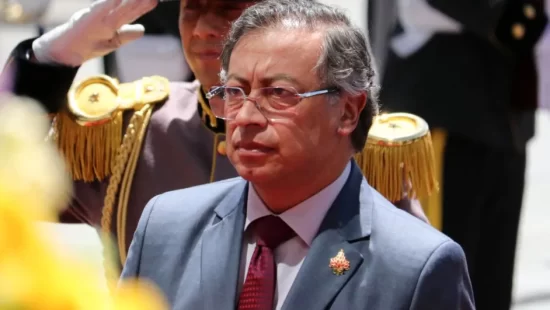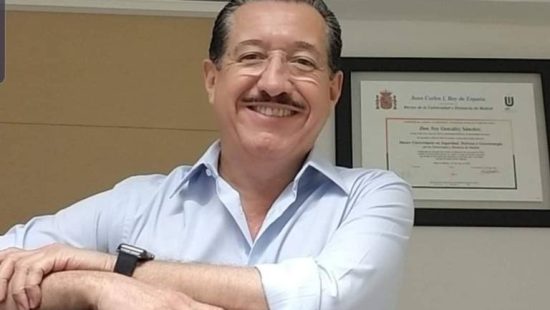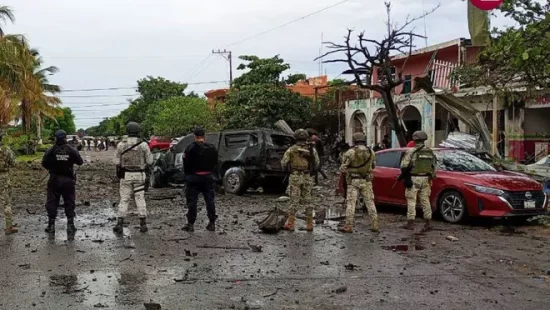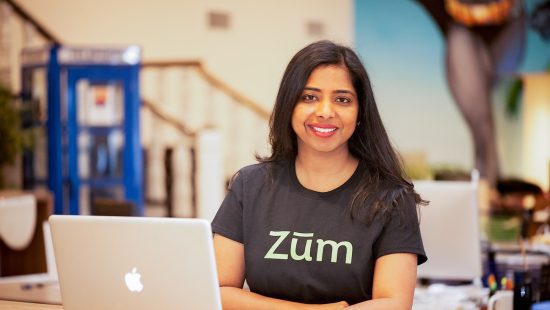Sometimes, she cried, and other times, she felt angry. However, even though she had her doubts, she knew that her escape could be education, the chance to attend university.
Vanesa Cruz Granados crossed the border at three years old. Her parents decided to migrate from Mexicali to San Bernardino, seeking better opportunities for her, and later for her two sisters and brother. Her father worked in construction while her mother took care of them. In her early years in this country, they moved around a lot through the Inland Empire.
“The economic crisis hit; we couldn’t pay rent, we were looking for a place we could afford,” says Vanesa. She is a third-year student at UCI majoring in Psychology. She serves as one of the two Events Co-Directors in the organization Undocumented Student-Led Network.
“We moved a lot, I couldn’t make friends; it was sad. I didn’t speak English until the third grade. Many laughed at me. They didn’t bully me but criticized my attempts and pronunciation. By third grade, I spoke well. My parents worked hard,” Vanesa says.
She always knew she was undocumented; she wasn’t ashamed of it. In seventh grade, she told her class that she was Mexican and didn’t have papers.
She began to try to help in classes, but she couldn’t. Although she was one of the best students, she started to realize that her immigration status could affect her. The family’s economic situation wasn’t good either.
“It wasn’t enough, no matter how hard my dad worked. We had to go to food drop-offs; my dad washed trailers and did what he could to get by,” she says. “Other times, my relatives would come by to drop off food.”
“I never blamed them (her parents), and I never will. They did what they thought was best for us. I realized that my story wasn’t the only one. Like me, there are thousands of students whose applications were not processed. I felt hopeless at that moment,” she adds.
Sometimes, she cried, and other times, she felt angry. However, despite her doubts, she knew that her escape could be education, the chance to attend university.
“I saw everything that was happening around me. It was the Trump era, the anti-immigrant rhetoric, the jokes about how we were colonizing the country, the lack of opportunities, and… the end of DACA,” she adds.
When she attended high school, she became one of the best students and looked for scholarships to allow her to attend university. She wanted to make her parents’ efforts and the limitations she faced worthwhile.
Her parents were positive; they told her that despite Trump and the suspension of DACA, things had to change, that a space would open where she could find a path to her dreams.
“I had really good teachers and counselors who helped me. They guided me. I also found some support groups on Instagram. That gave me hope,” says Vanesa.
This student exudes confidence in her plans and what she shares. She studies, analyzes, plans, and executes. She has all the strength that migrants possess: resilience and the will to succeed at any cost.
Her academic journey has swung between positivity and anger. When DACA applications were canceled, and hers had been denied, she seriously considered returning to Mexico. Her parents questioned whether they had done the right thing by bringing their family to this country.
“I never blamed them, and I never will. They did what they thought was best for us. I realized that my story wasn’t the only one. Like me, there are thousands of students whose applications were not processed. I felt hopeless at that moment,” she adds.
Just as her application was canceled, she found herself in the same situation as so many others.
“I gave up. I cried all the time. How could a successful student not follow her dreams? It’s human to migrate. You know the blow we feel when our friends and family simply say, ‘we’re going to the border,’ ‘we’re going on a trip abroad,’ and we’re left behind, unable to do anything,” she adds.
“I want to go to law school, become a lawyer. I want to help people, get involved in humanitarian issues, I want to help. I don’t want to spend my life as a counselor. I need to take action and transform this society,” she said.
She applied to various universities and was admitted to UCI. Immediately, she began to gather information about support centers for students like her. She joined the Dream Center and other organizations. She realized that like her, many others were in the same boat. And she started her activism.
“I didn’t let myself be isolated from the community; I joined them and began participating in activities. I also analyzed what I could do in the future. I chose psychology as my major because I believe I can later work as an independent contractor and open my own practice,” she says.
Her time at university hasn’t been solely dedicated to education. She has worked temporarily in restaurants and warehouses. She says she wants to pay for her master’s degree, but she knows it will be difficult. What she earns has to be invested in gas and other daily expenses.
“All this activism, my story, my financial struggle has taught me many things. This movement is bigger than me. I have a lot of hope. When Newsom vetoed the bill that would allow us to work on campus, I cried; I felt sad and angry. I didn’t understand why his political career was more important than our community. Politicians move away from the original purpose they serve,” she says.
She is very hopeful about the lawsuit her organization has filed against the UC system.
“”The UC system can address the issue of jobs for undocumented students. They need to be held accountable and recognize who we are.”,” she says.
Despite having chosen psychology, she now leans towards her desire to become a lawyer.
“I want to go to law school, become a lawyer. I want to help people, get involved in humanitarian issues, I want to help. I don’t want to spend my life as a counselor. I need to take action and transform this society,” she concludes.








